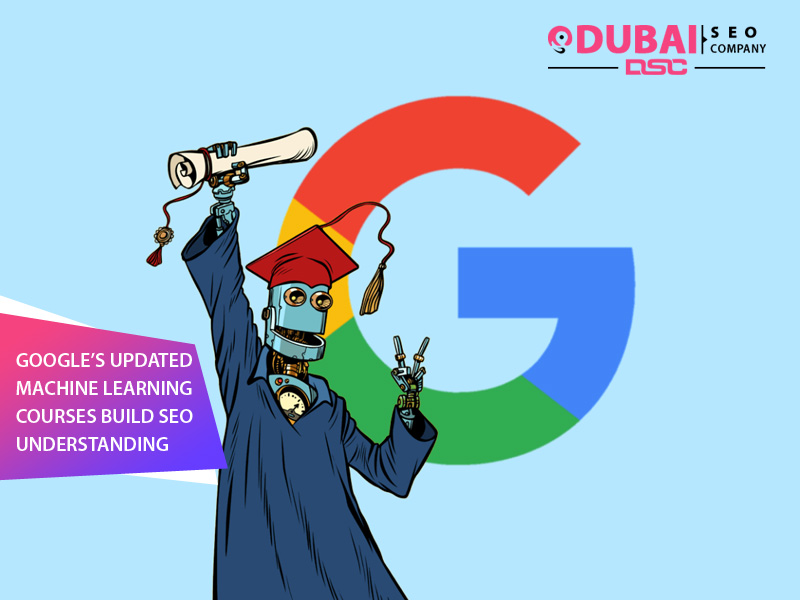The most prevalent aspect in this ever-emerging digital marketing world is to stay one step ahead of the algorithms. Companies whose biggest reliance is finding visibility via search results must understand exactly how Google’s search engine functions.
For more than two decades now, SEO has evolved from a bundle of keyword tactics to an advanced practice incorporating ML advanced technology. Google therefore offers several courses in machine learning that keep marketers, SEO professionals, and businesses aware of the knowledge related to improvement in understanding about SEO.
These are extremely helpful for any person working in the field of SEO services or running a digital marketing firm. Such digital marketing services provide insight into how machine learning is transforming the landscape of SEO rankings.
Why is Machine Learning Important in SEO?
Machine learning highly supports Google’s ranking and organization of results. The algorithms do not rely on static rules but learn and grow with time.
One of the most famous examples is the RankBrain Google, which was built to improve the understanding of search queries in terms of context and intent. In many ways, RankBrain has changed how SEO works from just matching keywords to something much more complex: observing user behaviour, relevance, and engagement.
That is to say, businesses cannot rely on older practices like keyword stuffing or stiff rod-like backlink structures. They have to be aware of the machine learning process so they can do better.
Thus, knowing about Google’s machine learning is worthwhile. It gives insight into how digital marketing services use digital marketing services use such very complex algorithms.
What Google’s Machine Learning Courses Entail
Google machine learning courses are available to everyone. It provides material from basic to advanced topics for those who already have a good understanding. It expands on how machine learning advances search, primarily in categories like NLP, predictive analytics, and pattern recognition.
These are vast amounts of course material and form the basis of modern SEO services, too. So, understanding user intent and how it affects rankings is pretty much the point of many courses.
Through this study of what Google’s machine learning algorithm identifies as information about the user’s intent and what that means to content production and resulting ranks, one is able to formulate content in which a human expects to find more related information to his product or service.
Even more interestingly, the course shows how machine learning aids Google in fighting spam and black-hat SEO. After learning how Google detects manipulative moves and penalizes them, one will know how to avoid expensive blunders and get onto a path of sustainable long-term SEO strategies.
Benefits for Digital Marketing Services or Agencies

Knowing how machine learning influences SEO is the passport to delivering effective SEO services to any digital marketing agency. Google courses will provide theory and practical tools that agencies can apply directly to their clients’ projects.
One benefit of this kind of training is to learn how to design data-driven SEO strategies. Marketers can use machine learning to scan through large volumes of data quickly, thus revealing trends and opportunities that would not have appeared otherwise.
As a reward, the infusion of this knowledge into practice will keep them quite personalized and efficient while trying to give SEO solutions to such agencies. Machine learning has the potential to make predictions to the agencies on possible keywords that may attract traffic to one’s website.
Identifying changes in the content toward trends in search and shifts in search rankings is a good strategy. This precision may be the only thing that makes a digital marketing company stand out from its competitors, offering innovative, cutting-edge, and results-oriented SEO solutions to clients.
Machine learning in the real-world applications of SEO
It provides many practical applications of machine learning, which also helps in SEO services. Most likely, its use is content optimization. There, the machine learning sifts through existing content and gathers insights about what works and does not.
Other highly valuable uses of Google courses include predictive search analysis. The course outlines how machine learning predicts trends in searches, as well as user behaviour. However, businesses can better predict when their particular business may experience seasonal spikes in searches and therefore take on strategic changes as a result.
It can be very lucrative for the likes of e-commerce websites and businesses offering services to look towards taking advantage of peak periods in search.
Technical SEO services also incorporate machine learning. Such algorithms are used by Google to rank the performance of websites depending on machine learning. It is dependent on a number of elements such as page speed, mobile usability, and structured data.
If ranking factors are understood, then technical SEO specialists can fine-tune their optimization techniques to ensure that websites meet the ever-changing sophistication of Google.
The Human Touch in Machine Learning-Driven SEO
Even though machine learning involves automation and efficiency in doing SEO, the human factor will always be at the helm.
Google’s courses for machine learning are more oriented toward making sure that there will always be a human eye during the development and implementation of strategies for SEO. Information and insights can be derived via machine learning. However, it is left for marketers and SEO services to interpret these data and apply them creatively.
For example, as machine learning can suggest trending keywords and topics for content, it is the human instinct that actually creates good storytelling and content people would be interested in reading.
In the same way, it is human judgment that decides the best SEO tactics suitable to fit the brand’s purpose and values. That is the kind of synergy between machine learning expertise and human creativity that makes modern SEO both very powerful and nuanced.
The Future of SEO: Machine Learning and Beyond
As Google continues refining its search algorithms even more, the future of SEO will take shape with machine learning. To ensure that business-to-business relevance and ROI are achieved, SEO providers need to stay ahead of the curve.
According to Google’s machine learning courses, they are ready to fit in the required knowledge base for a digital marketer to navigate the future of SEO correctly.
As we advance, it shall be much more heavily integrated into voice search, visual search and AI-powered content creation. This would make for even better preparation of SEO professionals regarding new changes and their successful implementation at a time when the complexity in the world of digital is growing.
Conclusion
The impact of machine learning over SEO services is knowledge any digital marketing professional needs to have in modern days. Such knowledge of these algorithms that directly affect the outcome becomes one of the direct outcomes for an SEO professional.
Such companies providing digital marketing services can produce fortified products while providing exemplary performance. Whether it is a well-established agency or just a small business, investment in the education of machine learning is an investment toward sustainable success with SEO.

